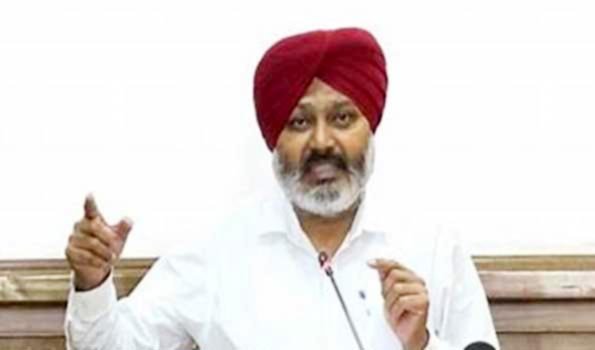New Delhi, June 9 (UNI) Politically savvy and known as a tough and disciplined administrator during his term as India’s Home Minister, Amit Shah on Sunday returned to Prime Minister Narendra Modi’s Cabinet 3.0.
Shah, who won from Gujarat’s Gandhinagar constituency with a staggering margin of 7,44,716 votes in the just-concluded Lok Sabha polls, has been PM Modi’s close aide for decades, right from the time when he was minister in Gujarat during Modi’s chief ministership.
Known for his exceptional organisational skills, Shah was earlier Bharatiya Janata Party (BJP) president and was instrumental in expanding the party’s footprint across the country, including in the Northeast and East.
Born on October 22, 1964, in Mansa, Gujarat, Shah joined the RSS at the age of 16 in 1980, and in 1982 was associated with the Akhil Bharatiya Vidyarthi Parishad (ABVP), the BJP’s student wing while pursuing his studies in Biochemistry. His association with Modi began in the 1990s when the two were busy expanding the BJP’s presence in Gujarat.
He won his first election as MLA in 1997 from Sarkhej in Gujarat, and has won every election he has fought since then – earlier Gujarat assembly elections, and later parliamentary elections.
After the BJP won the 2002 Gujarat elections, Shah became a minister in the Modi-led state government, and was the youngest minister. He was given important portfolios, including home, law and justice, prison, border security, civil defence, excise, transport, prohibition, among others.
Under the then Congress-led UPA central government, Shah was implicated in the Sohrabuddin encounter case while he was a Minister in Gujarat. He resigned and spent three months in jail during the trial period. The Gujarat High Court while granting him bail observed that “there is no prima facie case” against Shah, and in 2015, a special CBI court acquitted Shah of all charges terming the case as ” politically motivated”.
Shah’s true potential was unleashed when he was appointed the BJP’s national president in 2014, a position he held until 2020. Under his leadership, the BJP saw a massive surge in its popularity, and swept the 2014 and 2019 Lok Sabha elections. Under his presidency, BJP-led governments were formed for the first time in Assam, Tripura, Manipur, Haryana and Maharashtra.
In 2019, Shah was made Union Home Minister and spearheaded several crucial policy decisions, including the abrogation of Article 370 in Jammu and Kashmir, which granted special status to the state, and carving up the state into two union territories.
He also played a key role in passage of the Citizenship (Amendment) Act, which grants citizenship to persecuted minorities from neighbouring countries like Pakistan, Bangladesh and Afghanistan. Besides, he oversaw implementation of the National Register of Citizens (NRC) in Assam, to address the concerns over illegal immigration.
The Ministry of Home Affairs under Shah also took tough measures to counter left-wing extremism in states like Chhattisgarh and Maharashtra, but incidents of attacks on security forces by Maoists continue to recur.
In 2021, PM Modi formed the Ministry of Cooperation and gave Shah its charge.
Known as a fiery orator, Shah rebuts criticism from political adversaries with arguments loaded with facts. He has also been vocal about India taking back Pakistan-occupied Kashmir during campaign rallies for the Lok Sabha elections.
Interested in cricket and chess, Shah took over as chairman of the Chess Association of Gujarat in 2006 while he was a minister. As an experiment he introduced chess in the primary schools of Ahmedabad.
According to his own website, Shah is fond of food, likes old film songs and movies and movies based on the lives of great Indians. He also enjoys playing chess. Since 2006, he has never gone on a foreign trip.
With Shah taking oath as Cabinet minister, his strategic planning and political acumen will be valuable assets for the Modi 3.0 government’s path ahead.











